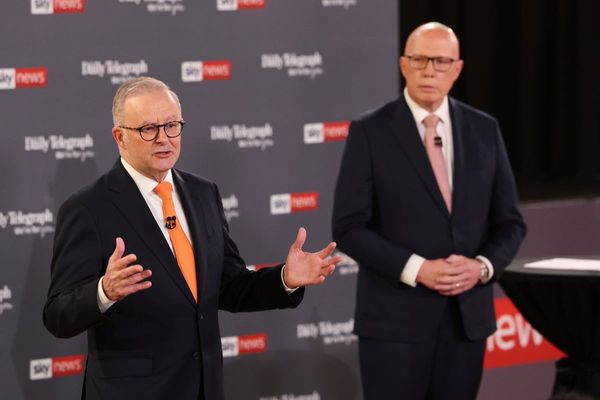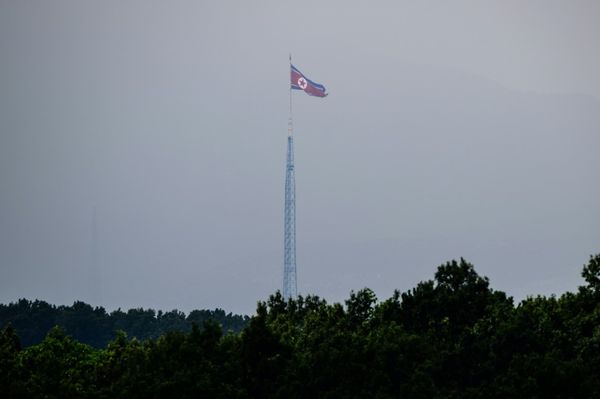
A candidate for Pauline Hanson’s One Nation is “massively annoyed” after he was referred to the Australian federal police for allegedly nominating to run in two different seats on opposite sides of the country, saying he had “no idea” he was a candidate for the far-right party.
On Friday, the Australian Electoral Commission revealed that it had referred Malcolm Heffernan to the AFP after discovering he had nominated to stand in the New South Wales seat of Banks and the Western Australian seat of Brand.
The nominations were for two separate parties. Heffernan was selected as One Nation’s candidate in Banks, but was standing for the little-known Australian Federation party in WA.
But Heffernan, who lives in WA, has pointed the finger at One Nation, saying he only nominated for the Australian Federation party after being told his “services were no longer required” by One Nation.
In an interview with the Guardian, Heffernan insisted he had “no idea” the party had submitted his nomination form, and that he was “massively annoyed” at the prospect of being investigated by the federal police.
In a statement the AEC said that each of Heffernan’s nomination forms contained a signed declaration that he “did not intend to be a candidate in any other election held the same day”.
But Heffernan said that until he received a “nasty letter” from the AEC a few days ago he had no idea he had been running in two different electorates on the other side of the country.
“It’s 100% not my fault,” he said.
He told the Guardian that he had initially been asked by One Nation to run for them in Brand, the WA seat where he lives. But after they discovered he had previously been a candidate for the now defunct far-right party founded by former One Nation senator Fraser Anning, he was dropped.
“They wanted me to run but head office turned around and blocked it,” he said.
“Obviously they don’t like Fraser Anning because he got in on her ticket and left.”
Heffernan said he was again approached by One Nation, this time asking him to run in the seat of Banks, almost 4,000km away.
While he agreed the request was “weird”, he said he assumed the party just wanted “bums on seats” and agreed to run in the seat.
“But I waited 24 hours after I did my application and they rang me again and said no actually we’ve got someone else and their exact words were ‘your services are no longer required’.
“Then they said, well will you still help us campaign and I pretty much said you can get stuffed, you’ve given me the run around since early March.”
He instead decided to run for the Australian Federation party, a micro party which is campaigning against Covid-era restrictions.
The AEC alleges that Heffernan’s nomination form had differences in the listed information, “including a different date of birth, and a different expression of the candidate’s name”.
Heffernan admitted he had listed two different birth dates on the forms, but insisted he made an error on the One Nation nomination because he was in a “rush” to get it done.
“I made that mistake on my date of birth because they [One Nation] were giving me the hurry up to do the paper work. My birthday is the 18th of the fifth, 1978, and I wrote the 18th of the eighth, 1978. That was my fault but I didn’t even know about it until I got the letter.”
Heffernan says that since he received notification that he had been referred to the AFP, One Nation had been “dodging” him.
In a statement, One Nation said it would “fully cooperate with the AFP’s investigation” and would undertake an internal investigation.
“One Nation expresses its disappointment the AEC did not detect Mr Heffernan’s dual nomination before the close of the nominations,” a spokesperson said.
The statement, which did not address Heffernan’s claim that he did not know he was a candidate for their party, said it had accepted his application to be a candidate “in good faith, including his statement that he was not a member of another political party”.
“We will nevertheless undertake a review of our candidate vetting process to ensure this does not happen in the future,” the spokesperson said.
It marks the second time during this election that the AEC has referred a candidate to the federal police. Last week the commission referred former One Nation senator Rodney Culleton to the AFP after he nominated to run for the “Great Australia party” in the WA Senate.
The AEC said it had referred Culleton’s case alleging he declared he was not an undischarged bankrupt or insolvent. But the commission said Culleton was listed as an ‘undischarged bankrupt’ on the National Personal Insolvency Index.
“The AEC has referred Mr Culleton’s candidate nomination form to the Australian Federal Police to ascertain if a false declaration has been made,” the commission said.
“The outcome of the AFP’s examination of this matter will be a matter for the AFP to advise in due course.
“If the AEC is presented with compelling evidence that other candidates in the 2022 federal election may have also signed a false declaration, we will consider whether similar referrals to the AFP are warranted.”
After the AEC referred his case, Culleton said he had “never been a bankrupt at law”.
“This matter was referred by the AEC in 2019 and was dismissed through lack of evidence … I am not in contravention [of section] 44 [of the] constitution … and [am] simply going back to address unfinished business to overcome the injustice that has occurred,” he said.
Culleton was declared bankrupt in 2016, and was dismissed from the Senate. He appealed to the WA supreme court, but the conviction was upheld.
Also on Friday, social media companies removed a video posted online by Hanson that misleadingly showed cartoon Labor figures discussing voter fraud.

The AEC confirmed it had contacted Facebook, TikTok, Reddit, Twitter and YouTube after the video, the latest in a controversial One Nation satirical series, was posted on Friday.
It depicted cartoon figures of the Labor leader, Anthony Albanese, and Senator Penny Wong.
The video was later removed from Facebook and TikTok, and flagged as misleading on Twitter, but remained available on other platforms.
The AEC said freedom of speech was important and it did not regulate truth in campaigning or political communication, but it was concerned about material that did not accurately reflect electoral processes or integrity measures.
Hanson said in a statement the video had only been removed because it embarrassed the AEC and Labor.
Additional reporting Nino Bucci







